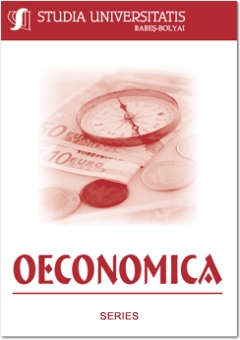SOME EFFECTS OF TRADE LIBERALISATION ON CAMEROONIAN MANUFACTURING EXPORT PERFORMANCE
SOME EFFECTS OF TRADE LIBERALISATION ON CAMEROONIAN MANUFACTURING EXPORT PERFORMANCE
Author(s): Henry Bezuidenhout, Ewert. P.J. Kleynhans, Waldo Krugell, Bernard BongshaSubject(s): Economy
Published by: Studia Universitatis Babes-Bolyai
Keywords: Trade liberalisation; manufacturing; gravity model; strategic policy; and Industrial policy.
Summary/Abstract: This study investigates the effect that trade liberalisation had on the export of manufactured goods in Cameroon. The study estimated the effects this liberalisation had on the determinants of exports of manufactured commodities and its influence on the country’s economy, using an augmented gravity model. The model revealed that the effect of exchange rate appreciation on the export of manufactured goods was less than it was before trade liberalisation, though still positive. After liberalisation, manufactured exports reacted positively following increased imports of intermediate goods and a lowering of tariffs; but it was restricted by higher production capacity. Further investigation indicates that the exports of manufactured goods were stimulated by the liberalisation of trade, although manufacturing growth was still dampened. The effect of the local economy’s size became more important, while the influence from foreign GDP declined. Membership of regional trade agreements became negative, which was unexpected. Distance became more important, and the effect of tariffs declined; though still negative. It was found that international trade liberalisation by Cameroon mostly benefited its manufacturing sector, improving its ability to export and to create jobs.
Journal: Studia Universitatis Babes Bolyai - Oeconomica
- Issue Year: 59/2014
- Issue No: 1
- Page Range: 3-24
- Page Count: 22
- Language: English

